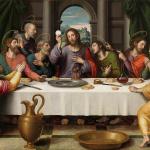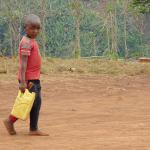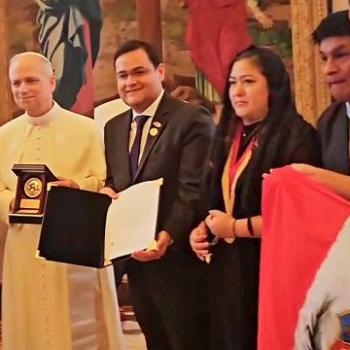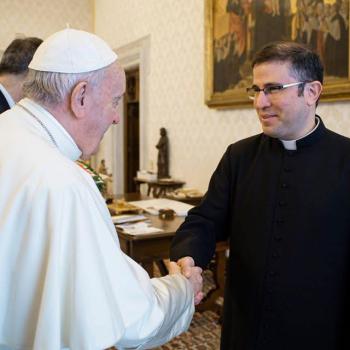I gave this reflection on the immigrant experience at a Diocesan Hispanic Ministry Encounter several years ago after reading the Gospel passage of the Lost Sheep. 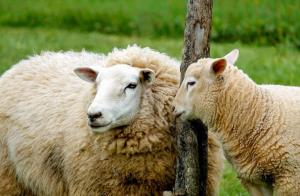
Poor little sheep.
Attracted by greener pastures and cooler waters, the little sheep of the Gospel separated herself from the flock. Reaching greener pastures, she filled her belly. Reaching cooler waters, she quenched her thirst. Suddenly however she looked up and realized terrified that the shepherd and the sheep were gone. Far from everything that was familiar, she was lost. She was distant from what had anchored her in her very exciting life as a sheep.
The new pastures were plentiful and the water refreshing, but the sheep was lost. She felt uprooted and disoriented. What relief and joy she felt when she saw the shepherd! Finally she saw someone familiar, someone who cared for her and most especially, someone who brought her back to the flock.
The experience of the lost sheep is the experience of the immigrant.
Immigrants find themselves in different pastures, most of the time due to circumstances beyond their control. Lack of opportunity, hunger, oppression, unemployment, persecution, intimidation and so many other situations, convince thousands of men and women every day that it is necessary to leave behind their flock, to leave behind the culture that roots them as human beings, to leave behind the language they learned from their parents, and the family and societal structures they find familiar and comforting. They leave seeking greener pastures.
The immigrant lives in a pasture that will never become his own, and the longer he lives there, the less he identifies with the pasture he left behind. The immigrant belongs to both pastures and to neither.
Being an immigrant is living an uprooted existence, experiencing displacement like the lost sheep. It is living with a blurry identity of who you are and where you belong. The immigrant belongs to both pastures, yet at the same time belongs to neither. The immigrant struggles to find a solid identity since he lives in between two worlds. Resentment, depression and despair can quickly invade the hearts of those caught between two words… no wonder Hispanic female adolescents have had the highest suicide attempt rate in the United States since 1995.
For myself, growing up in Augusta, Georgia, at school I was “the Peruvian kid” who spoke English a little funny and whenever I visited Peru I was the “gringo cousin” who, as time went by, spoke Spanish a little funny. This is the experience of belonging to neither and belonging to both.
The words of an elderly Mexican parishioner a few years ago have sealed themselves into my memory: “Father, I know they don’t want me here in the United States, but if I return to Mexico my husband will be killed. When, Father, will I find a place where they want me?” Unfortunately, this is the experience of belonging to neither.
When a plant is uprooted, soon the plant withers and dies. If an immigrant remains with the sense of being uprooted, he or she too will wither and die.
Where does an immigrant find the best soil for his roots to grow? Where does the lost sheep find comfort and joy after realizing she is lost?
In Jesus Christ. Jesus Christ the Good Shepherd who not only finds and roots the immigrant who wanders like a lost sheep, but finds and roots every single human being.
My own struggle to understand my identity as a teenager and young adult was resolved when I found my identity in Jesus Christ. My country of birth is certainly Peru, that is what my birth certificate states. I was born there and without a doubt my roots are there. This country, the United States, has helped me to develop as a person, to grow, to study, to work and to be here today as a priest. On top of this, I am an Italian citizen with a European Union passport. I may have three passports, yet no country roots me as person. It is Jesus Christ and his Church that root me as a person; as a child of God. Only there are my roots firm and my identity clear.
I take the words of Saint Paul quite literally when he writes, “we are citizens of heaven.” The immigrant, rising from feeling uprooted, lost and displaced, finds his or her identity in Christ.
In our Church we have rich soil and green pastures. What relief and joy immigrants feel when they see their shepherd, their Church, their priest, someone familiar, caring for them and bringing them back to the flock. We pray for the love and zeal necessary to call all of the sheep to an encounter with the Good Shepherd who manifests Himself in the Eucharist. The Shepherd who seeks and roots every lost sheep, giving her an identity that cannot be taken away, the joy of being a child of God.
Picture in the public domain. Click here.


